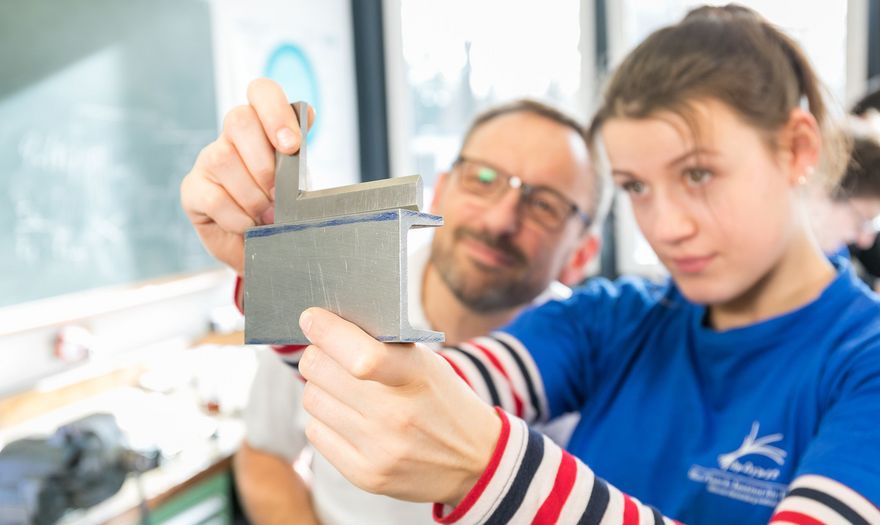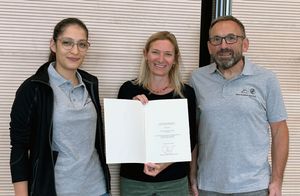We train young people for two professions in the field of technology:
- Electronic engineer for devices and systems
- Industrial mechanic for precision tool engineering
The MPI for Physics places value on well-founded knowledge communication, excellent supervision and learning without time pressure. Our trainees are trained at state-of-the-art machines with modern technologies. For example, they learn how to mill/turn with CNC machines and how to produce CAD constructions. Here, web-based learning programs are used.
From the beginning, trainees are involved in particle physics research projects. They work in teams with physicists and engineers on current ongoing and new experiments, such as particle detectors, telescopes and highly sensitive sensors for dark matter.
The concept pays off – for our trainees and for us
To date, all of the over 120 trainees have successfully completed their training, most of them with above-average results. This is reflected by the various awards that our trainees have received in recent years. We enable our young specialist staff to gain their first professional experience in our Technical Departments after they have passed their exam. The young professionals also have excellent career prospects outside the MPI for Physics.
What do you learn in the training?
All trainees are given operational training and learn in teaching blocks at the professional school. The teaching units are followed up in greater depth at the Institute. Involvement in various research experiments is an inherent part of the training.
The training programs begin on 1 September.
Training period: 3.5 years (early exam possible after 3 years if performance is good)
Curriculum
- Manual production, drilling, turning and milling of metals, plastics and high-tech materials. Various projects are produced during the basic training (e.g. Formula 1 car, compressed air engine, locomotive, television tower).
- In the course of their training, trainees also learn about other areas of mechanics.
- Some of these are also taught outside our training workshop in our technical departments, or even across institutes:
- Control technology (pneumatics)
- Welding
- Assembly of components
- Introduction to CAD
- 3D printing
- Basic electronics training
- Depending on their level of training, our trainees can already make a contribution to our experiments.
Training period: 3.5 years (early exam possible after 3 years if performance is good)
Curriculum:
- basic training in electronics
- power electronics
- microcomputer technology (assembler programming)
- stored program control (SPC)
- PC applications, e.g. CAD programs
- programs for PCB layout
- control and regulation technology, automation technology
- basic training in mechanics (drilling, turning, milling)
What do our trainees say?
“I’m training to be an industrial mechanic, because I’m really interested in manual work. What made me choose the Max Planck Institute for Physics? Quite simply because here, there’s no series production. Instead, every item that is produced is made individually, and you get to work alongside physicists on the various different projects. All the subject areas are very clearly explained and demonstrated in terms of both theory and practical skills. There’s also a very friendly working atmosphere.” – Raffael Freudenstein
“Here, the trainees get off to a great start in their professional life. We can get actively involved in the projects, immerse ourselves in all the different areas of the profession and learn to make the best use of the knowledge we have. I think it’s great that we are required to make our own decisions! We learn how to find solutions to problems by ourselves and at the same time, we get all the support we need.” – Lena Hofmann
“To be able to answer questions in the field of physics, new machines and devices have to be designed and built all the time. At the Max Planck Institute for Physics, a lot of people from many different countries and professional backgrounds work together, from the idea through to the finished product, to find the best possible solution. And because there are still enough questions in physics that still remain unanswered, I’m sure life will never be boring here!” – Ludwig Weingartner







